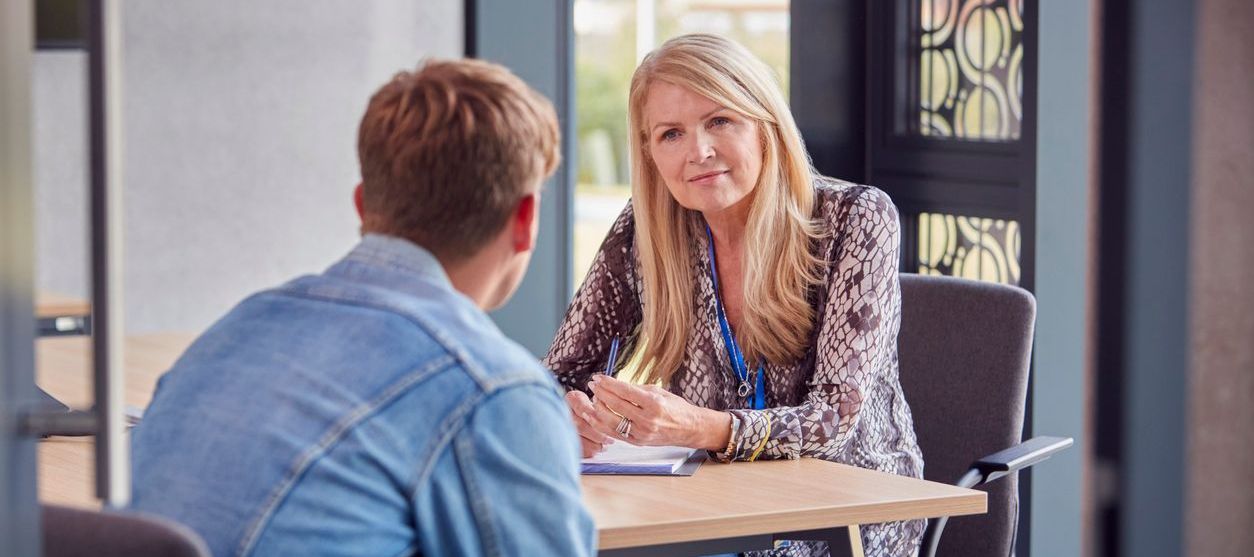-
Counselling Therapy for
Behaviour Issues in Youths & Teens
Find Qualified Counsellors & Therapists At
Affordable Fees Near You For Online Or In Person
Sessions. Request a Free Quote, review & book online!
What is Behavioural Issues Counselling Therapy
Youth & Teens Behavioural Issues Counselling Therapy is a specialised form of counselling aimed at addressing various behavioural, emotional, and psychological challenges faced by young individuals. This type of counselling provides a supportive and safe space for youth and teens to explore their thoughts, feelings, and behaviours, and develop coping strategies to navigate challenges effectively.
Common Issues Addressed Behavioural Issues Counselling
Youth & Teens Behavioural Issues Counselling addresses various issues, including:
- School-related stress: Coping with academic pressure, social dynamics, bullying, or performance anxiety in school.
- Behavioural problems: Addressing disruptive behaviours, defiance, aggression, or conduct disorders that impact relationships and functioning.
- Emotional struggles: Managing emotions such as anger, sadness, anxiety, or low self-esteem that affect overall well-being.
- Family conflicts: Resolving conflicts, communication breakdowns, or tension within the family system.
- Peer relationships: Navigating peer pressure, social isolation, friendship conflicts, or challenges related to identity and belonging.
- Substance abuse: Addressing substance use, experimentation, or addiction issues among youth and teens.
- Trauma and abuse: Processing traumatic experiences, abuse, neglect, or adverse childhood events affecting mental health and behaviour.
Benefits of Behavioural Issues Counselling Therapy
Youth & Teens Behavioural Issues Counselling offers numerous benefits, including:
- Improved coping skills: Learning effective coping strategies, problem-solving skills, and emotion regulation techniques to manage challenges and stressors.
- Enhanced self-awareness: Developing self-awareness, insight, and understanding of one's thoughts, feelings, and behaviours.
- Strengthened relationships: Improving communication skills, conflict resolution abilities, and interpersonal relationships with peers, family, and authority figures.
- Increased resilience: Building resilience, adaptability, and coping mechanisms to bounce back from setbacks and navigate transitions with confidence.
- Better academic performance: Addressing academic challenges, improving study skills, and reducing school-related stress to enhance academic performance and engagement.
- Reduced risk behaviours: Decreasing engagement in risky behaviours such as substance abuse, self-harm, or delinquency through targeted interventions and support.
Goals of Behavioural Issues Counselling Therapy
The goals of Youth & Teens Behavioural Issues Counselling may include:
- Identifying triggers: Identifying triggers, underlying factors, and contributing influences to problematic behaviours or emotional struggles.
- Developing coping skills: Learning and practicing healthy coping mechanisms, relaxation techniques, and stress management strategies to regulate emotions and behaviours.
- Improving communication: Enhancing communication skills, assertiveness, and conflict resolution abilities to express needs, set boundaries, and navigate relationships effectively.
- Building self-esteem: Cultivating self-confidence, self-esteem, and self-worth to foster a positive self-image and sense of identity.
- Strengthening family dynamics: Facilitating open communication, understanding, and collaboration within the family system to address conflicts and promote cohesion.
- Enhancing social skills: Developing social skills, empathy, and perspective-taking abilities to navigate peer relationships, resolve conflicts, and foster positive connections.
What to Expect in Behavioural Issues Counselling Sessions
In Youth & Teens Behavioural Issues Counselling sessions, individuals can expect to:
- Build rapport and trust with the counsellor in a safe and non-judgmental environment.
- Explore thoughts, feelings, behaviours, and experiences contributing to behavioural issues or emotional struggles.
- Collaboratively set goals and develop a treatment plan tailored to the individual's needs, strengths, and preferences.
- Learn and practice coping strategies, problem-solving skills, and emotion regulation techniques through role-playing, experiential exercises, and homework assignments.
- Receive feedback, guidance, and support from the counsellor to navigate challenges, setbacks, and progress in therapy.
- Involve parents or caregivers in the counselling process as appropriate to support behavioural interventions, family dynamics, and treatment goals.
When to Seek Help
Youth and teens may consider seeking counselling for behavioural issues when they:
- Experience persistent emotional struggles, behavioural problems, or social difficulties that impact daily functioning, relationships, or academic performance.
- Engage in risky behaviours such as substance abuse, self-harm, aggression, or delinquency.
- Express feelings of distress, sadness, anxiety, or hopelessness that interfere with overall well-being and quality of life.
- Encounter conflicts or communication breakdowns within the family, peer group, or school environment.
- Feel overwhelmed, isolated, or unable to cope with life's challenges and transitions effectively.
How to Find the Right Counsellor
When seeking a counsellor for Youth & Teens Behavioural Issues Counselling, consider the following factors:
- Specialisation: Look for a counsellor who specialises in working with youth, adolescents, or teens and has experience addressing behavioural issues, emotional struggles, and family dynamics.
- Approach: Choose a counsellor whose approach aligns with your goals, preferences, and needs for counselling, whether it's cognitive-behavioural therapy, family therapy, or play therapy.
- Credentials and experience: Verify the counsellor's credentials, licensure, and experience working with youth and teens experiencing behavioural challenges, trauma, or mental health issues.
- Compatibility: Select a counsellor who creates a supportive and engaging environment, fosters rapport and trust, and demonstrates empathy and understanding towards youth and teens.
Behavioural Issues Counselling FAQs
- How can counselling help with my teen's behavioural issues? Counselling can help by providing a safe space for your teen to explore and address underlying issues contributing to behavioral problems, learn coping skills, improve communication, and strengthen relationships.
- What should I do if my teen refuses to attend counselling? Encourage open communication, express empathy and understanding, and emphasise the benefits of counselling. Offer support and reassurance while respecting your teen's autonomy and boundaries.
- Will my teen's confidentiality be respected in counselling sessions? Counsellors uphold strict confidentiality guidelines, but they may need to breach confidentiality in cases involving imminent risk of harm to self or others. They will discuss confidentiality limits with your teen before starting therapy.
- How long will my teen need to attend counselling sessions? The duration of counselling depends on various factors, including the severity of behavioural issues, individual progress, and treatment goals. Your teen's counsellor will discuss treatment duration and progress with you regularly.
- Can I be involved in my teen's counselling sessions? Yes, parents or caregivers may be involved in counselling sessions as appropriate to support treatment goals, address family dynamics, and collaborate on behavioural interventions. Your teen's counsellor will discuss involvement options with you.
LGBTQ+ Considerations
For LGBTQ+ youth and teens seeking counselling for behavioural issues, it's important to find a counsellor who is affirming, supportive, and knowledgeable about LGBTQ+ identities and experiences. Look for counsellors who create a safe and inclusive space for discussing LGBTQ+ concerns, identity development, and family acceptance.
Next Steps for Help and Recovery
If you're a youth or teen experiencing behavioural issues or if you're a parent or caregiver concerned about a young person's well-being, here are some next steps you can take:
- Schedule a Consultation: Reach out to a qualified counsellor or therapist specialising in youth and teens' behavioural issues to schedule a consultation and discuss your concerns, goals, and needs.
- Assess the Situation: Reflect on the specific behavioural issues, emotional struggles, or challenges impacting the youth or teen's well-being and functioning.
- Communicate Openly: Foster open communication and trust with the youth or teen, expressing concern, empathy, and support while encouraging them to share their thoughts, feelings, and experiences.
- Seek Professional Support: Collaborate with a counsellor or therapist to develop a tailored treatment plan, incorporating evidence-based interventions, coping strategies, and support systems to address behavioural issues and promote well-being.
- Involve Parents or Caregivers: Engage parents or caregivers in the counselling process as appropriate to support treatment goals, implement behavioural interventions, and address family dynamics and communication patterns.
- Encourage Self-Care: Encourage the youth or teen to prioritise self-care practices, hobbies, and activities that promote relaxation, stress relief, and overall well-being.
- Monitor Progress: Stay involved in the counselling process, monitoring progress, discussing concerns, and adjusting treatment goals as needed to support the youth or teen's journey towards healing and recovery.
Find Counsellors & Therapists Near You

Find Qualified Counsellors & Therapists
Near You, Get A Free Quote, Read Reviews, & Hire!
Online Or In Person Sessions.



